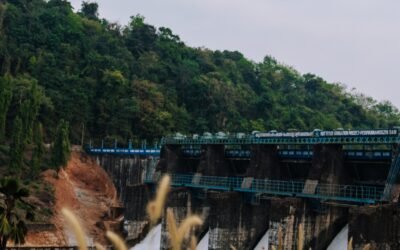Blog
From Blueprint to Backlash: Impact of Consumer Perception in the Real Estate Market
Abstract The Real Estate market, like many other economies, is heavily influenced by consumer demand. The way consumers perceive the market plays a crucial role in shaping your business. Consumer perception is a complex and subjective area of study that varies from...
The Next Step for the Paris Agreement must be an Effective Dispute Resolution Mechanism
The U.N. and its signatories have been putting much effort into creating a binding legal framework to fight climate change for over 50 years. Although remarkable progress has been made on the formal side of said framework, which currently revolves mainly around the...
Sustainable Aviation Fuel – A Study of the Existing Frameworks and a Need for Better Implementation
Abstract Sustainable aviation fuel (SAF) is a term, nigh used in the common parlance, yet it has gained traction in recent years due to two primary reasons, vis-à-vis, an increasing focus over climate mitigation and the new objectives adopted by various nations...
From Crisis to Opportunity: Revolutionizing India’s Healthcare Landscape
Abstract In the last three years, during the COVID-19 pandemic, the Pharmaceutical, healthcare, life sciences, and medical devices industries faced new challenges and adaptations. However, as we enter 2023, there is a sense of renewed optimism and focus on growth. The...
Investment in Nepal in Light of the Changing Geopolitical Dynamics
Abstract There is a demand for clean and green energy around the world and Nepal has a huge potential to produce hydroelectricity, among other industries. However, Nepal is heavily dependent on external financing for tapping or optimal utilization of its potential....
Forfeiture of Security Deposit in Infrastructure Projects: Balancing State and Private Interests
Abstract Infrastructure projects are the backbone of the Indian economy for they create basic organizational structures which are key to the nation’s operations. Illustratively, such infrastructure projects include construction, transportation, sewage, and...
Addressing Mismatches and Equitable Liabilities: CERC’S Inter-State Transmission Charges and Losses Regulations
Abstract In this blog article, the authors have analysed the first and the second amendment to the CERC (Sharing of Inter-State Transmission Charges and Losses) Regulations, 2020. The analysis covers key changes introduced by the first amendment, including the...
The SAROD Arbitration Framework, 2.5 Years On: How the Government of India Shot Itself in the Foot
Abstract "Arbitration is only as good as the Arbitrator" The SAROD framework was introduced to resolve disputes in the infrastructure sector –roadways and ports, with a singular objective of resolving disputes in an effective and time-bound manner. Introducing these...
Transmission System Reforms- A Plinth for Green India
Abstract India currently stands 4th globally in renewable energy installed capacity as per theREN21 Renewables 2022 Global Status Report. With a target of achieving 500 GW of non-fossil fuel capacity as declared in the COP26, the next half century would witness the...
PropTech in India: Stepping Stones for a Simplified Real Estate Sector
Abstract The real estate industry in India has always been one to frequently undergo significant changes, especially over the past decade. The enactment of theReal Estate (Regulation & Development) Act, 2016, along with other such statutes, has brought in a sense...
About Us
The Indian Journal of Projects, Infrastructure and Energy Law (IJPIEL) is a student-run law
journal and blog which was founded in July 2020 by a group of students from Universities
across the nation, led by its founder, Naman Anand.
Other Links
Our Story
Journal
Contact Us
Team










